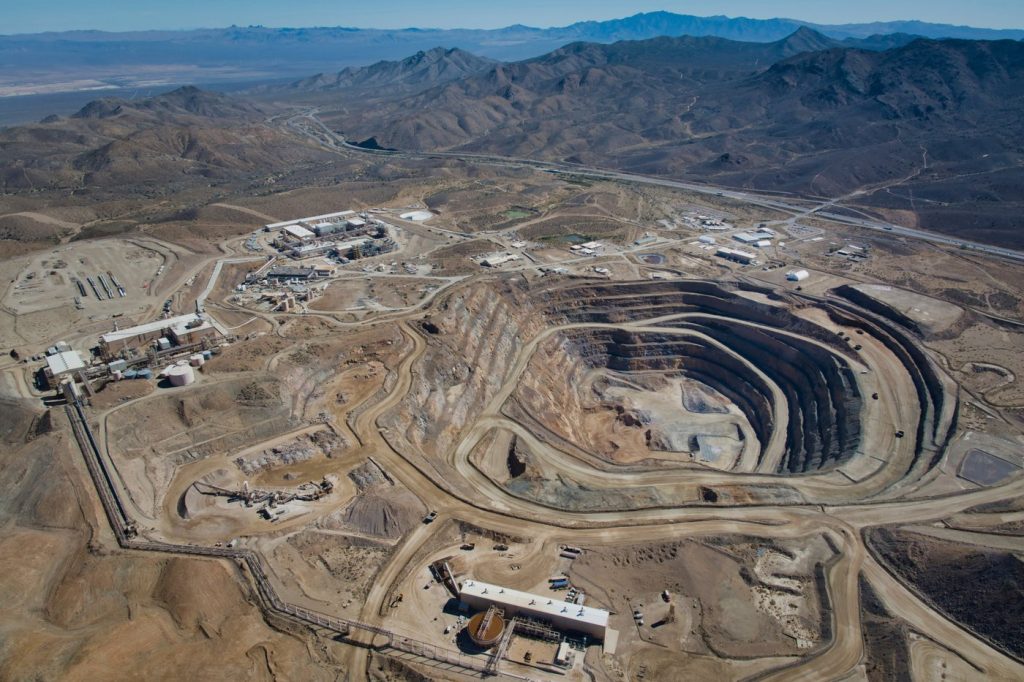OMAHA, Neb. (AP) — America’s only rare earths mine is facing increased demand and anxiety from companies following China’s response to President Donald Trump’s tariffs. Shortly after the tariffs were announced, China limited exports of rare earth elements that are vital for military applications and high-tech devices. Matt Sloustcher, a spokesperson for MP Materials, the operator of the Mountain Pass mine in California’s Mojave Desert, noted that they have received a surge of inquiries indicating immediate impacts from these developments.
The ongoing trade war between the U.S. and China threatens to create a critical shortage of rare earth elements, particularly if China enforces long-term export controls. The Mountain Pass mine, which cannot fully meet U.S. demand for these materials, has prompted the Trump administration to focus on facilitating the establishment of more domestic mines. Rare earth elements are essential components in various products, including electric vehicles, advanced fighter jets, and smartphones. Although these 17 elements are not actually rare, extracting them in sufficient quantities for economic mining is challenging.
MP Materials, which acquired the Mountain Pass site in 2017, announced that it would cease sending ore to China for processing due to the newly imposed export restrictions and a 125% tariff on U.S. imports. The company plans to process nearly half of its mined material on-site while storing the remainder to expand its processing capabilities. MP Materials stated that selling these critical minerals under such high tariffs is not aligned with American interests.
Industry experts predict that manufacturers dependent on rare earth elements will likely experience price increases; however, an adequate global supply could temporarily sustain operations. The Mountain Pass mine produces neodymium and praseodymium, essential for creating permanent magnets used in electric vehicles and wind turbines. Some heavy rare earths restricted by China, like terbium and dysprosium, are vital for high-temperature applications in magnets. Since March, the price of terbium has surged by 24%, reaching $933 per kilogram.
China dominates the rare earths market, producing 270,000 metric tons last year compared to the U.S.'s 45,000 tons. The country accounts for nearly 90% of the global supply of these elements and possesses most processing capacity. On April 4, China instituted export restrictions requiring special licenses for Chinese exporters of seven heavy rare earths and specific magnets. These measures increase the urgency for the U.S. to develop additional mines and lessen its reliance on Chinese sources.
Trump's administration has attempted to persuade Greenland and Ukraine to increase their rare earth production for the United States. Last month, Trump signed an executive order aimed at speeding up federal approval processes for new mines and promoting investment in these initiatives. Companies like NioCorp and U.S. Critical Minerals are actively seeking to develop mines in Nebraska and Montana, hoping to benefit from government support in raising funds and securing permits. NioCorp aims to raise $1.1 billion for a mine in southeast Nebraska.
MP Materials is working to enhance its processing capacity, aided by approximately $45 million from the Trump administration. Despite investing nearly $1 billion since 2020, the company currently lacks the capability to process heavy rare earths that China has restricted, but it is striving to remedy that situation. Major U.S. defense contractors like Boeing and Lockheed Martin, which are particularly affected by China’s restrictions, have remained cautious in their public comments about their dependency on rare earths.
As manufacturers brace for potential price increases in raw materials, reports indicate that some battery manufacturers may soon face shortages of critical elements used in batteries. There has been a significant rise in the price of antimony, an element crucial for the longevity of lead-acid batteries, which has already more than doubled since China limited its exports last year. Automakers are likely to absorb initial costs without raising vehicle prices, but this approach may not be sustainable if China’s restrictions endure.
The U.S. had met its rare earth needs domestically until the late 1990s, when cheap Chinese ores began saturating the market. The introduction of advanced technologies has spurred a rapid increase in demand for these materials. NioCorp plans to conduct more exploratory drilling this summer at its Nebraska site to demonstrate the presence of rare earth minerals to the Export-Import Bank, aiming for funding to advance the project. However, an operational rare earth mine in the U.S. could still be years away. NioCorp estimates that, if all goes well, their mine might be operational by the end of Trump’s presidency. Meanwhile, U.S. Critical Minerals is set to start digging in Montana, but its Sheep Creek project is not as advanced as NioCorp’s initiative.











